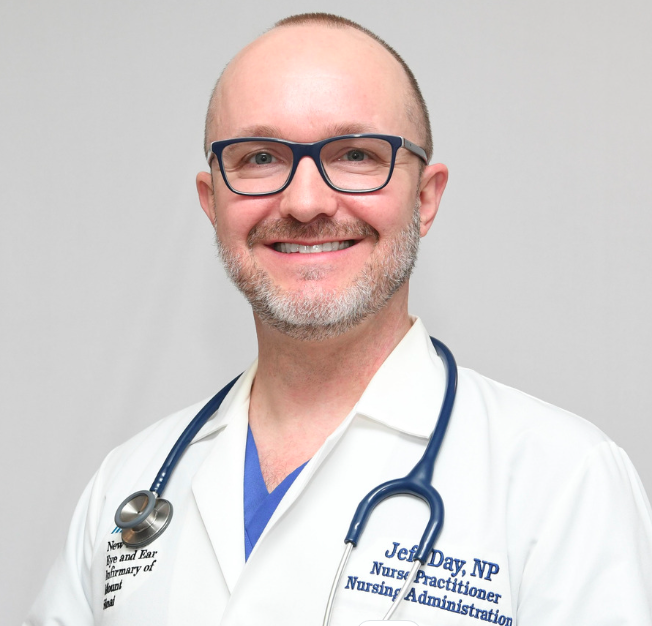As LGBTQIA+ nurses celebrate June’s Pride Month, they continue to advocate for accessible and safe care for the LGBTQIA+ community and for a nursing workforce that represents the populations they serve.
Jeff Day, DNP, AGPCNP-BC, CNEcl, who is chair of the nursing section of GLMA and a medical provider at Callen-Lorde a New York City-based community health center and a global leader in LGBTQIA+ healthcare, says a diverse nursing workforce is essential to good patient care, but it also makes an impact on nurses who want to feel their work is meaningful.
Day, who began his nursing career in 1990 and eventually earned his DNP in 2015, says LGBTQIA+ nurses offer a common link to their patients in the LGBTQIA+ community.
“I believe it’s important to have LGBTQIA+ nurses in the workforce to offer representation to LGBTQIA+ patients who they are taking care of,” says Day. “LGBTQIA+ patients who are dealing with the disparities all day every day and especially in healthcare deserve a soft place to land and that’s not always the case in healthcare. If we can get good representation in a healthcare settings, LGBTQIA+ patients will be more comfortable in accessing care.”
A New Journey
A recent career change brought Day out of academia and into direct primary healthcare with patients. While teaching as a full-time assistant clinical professor at NYU’s Rory Meyers College of Nursing, he spent one day a week in clinical work in post-surgical transgender care, and the experience inspired him to take a new path.
“I always had an eye toward teaching,” he says, and he began teaching full time in 2016. But the clinical work pulled him. “I fell in love with that population, and I knew I wanted to work in some way with them,” he says. “I thought full-time work would be wise. It’s difficult when you are working one day a week to gain any traction, and if I am really going to deliver expert care to not only that population, but to all the other LGBTQIA+ patients there, I thought full time would be the right thing to do. And it is extremely rewarding.”
Day says his current role in primary care means visits with patients are fairly short, but they also offer opportunities to build important connections. For patients who come for repeat visits for gender-affirming hormones, for example, Day says he’s able to see direct results from the acceptance offered at Callen-Lorde. “There is a trust and comfort. There’s an empathy built in that you don’t necessarily find in other healthcare settings,” he says.
Building a Comprehensive Nursing Curriculum
Eventually, Day sees himself returning to academia where he could continue to build LGBTQIA+ curriculum content. Day was able to start an LGBTQIA+ health elective course while teaching at Meyers, but he says the tendency for a nursing curriculum in general is to present information that will be on the board exams and not always the information that students will necessarily encounter in populations when they are nurses. “The boards haven’t caught up with the need for LGBTQ content,” he says.
That information is crucial for future nurses to provide high-quality care and understand nuances in LGBTQIA+ healthcare. Even at Callen-Lorde, a healthcare center known for LGBTQIA+ healthcare, patients aren’t always immediately comfortable.. “There’s so much medical mistrust,” says Day. “Patients have been burned or turned away from places so that even if someone comes to a place known for its care, there’s still mistrust. But when you see that overcome, that’s really powerful.”
That mistrust can permeate a nurse’s day in other ways, he says, and it’s up to nurses to recognize when it poses a challenge so they can take steps overcome it. As a new nurse, Day says he could get caught up in a patient’s anger or wariness and take it personally. With years of experience behind him, he says he now often uses an apology to diffuse a situation. “Even if I’m not the person causing the upset, like if we are running late, the willingness to apologize goes a long way. I don’t think that’s something people see in healthcare.”
And Day says it’s important for nurses to be aware of disparities so they can advocate for patients. If a colleague misgenders a patient, the nurse is the one who should offer a correction, he says. “It’s not up to the patient,” he says, “They’re here to get care.”
Focus on Hope
With so much upheaval in some areas of the world around LGBTQIA+ rights, Day says perspective is essential. “I think it’s important for nurses to not get discouraged,” Day says. “With some pockets of the nation, it looks bleak, but we’ve seen the pendulum swing back and forth before. I pray the same happens with trans rights and trans healthcare. I want to remain hopeful.”
As LGBTQIA+ nurses continue to provide needed care and advocate for patients, they offer hope in their work. The common experiences between LGBTQIA+ nurses and patients make for authentic connections that are felt on both sides, says Day.
“Part of what makes an encounter more comfortable is a shared language which comes in a community,” says Day. “It’s affirming to walk in to a provider’s office and have them speak the same language.” And Day says healthcare providers who aren’t part of the LGBTQIA+ community absolutely can take good care of patients, but there’s an undeniable layer of comfort when that common experience is present. He notes, “There’s something extra special about caring for someone from your own community.”
- A Camp Nurse Volunteer Shares the Joy - April 30, 2024
- Is the FNP Program Right for You? - April 24, 2024
- WOC Nurses Week Highlights Specialty - April 16, 2024



